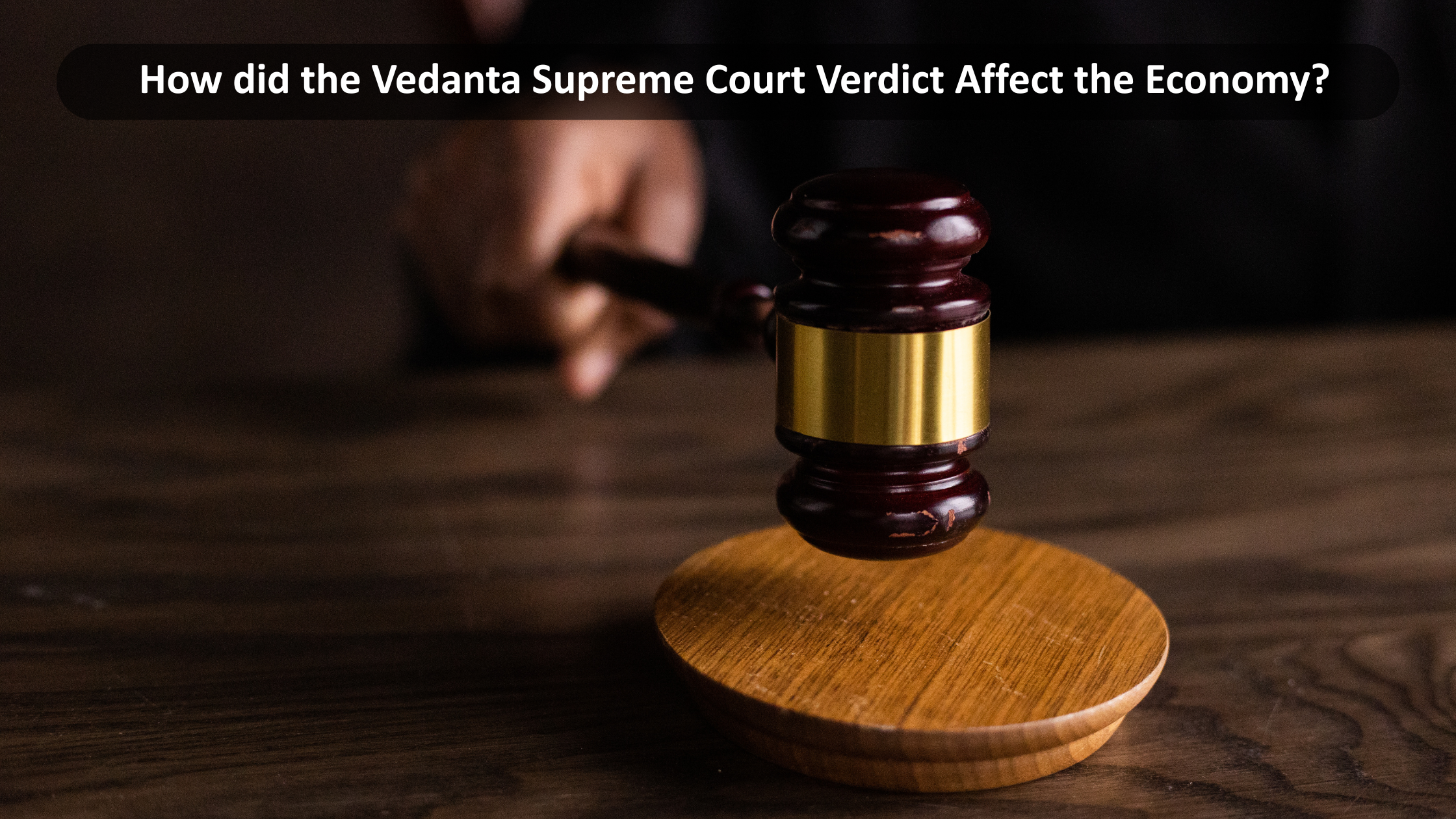The roadmap to corporate growth and success is not easy, as business leaders have to navigate and overcome numerous obstacles. Among the most debated corporations is Vedanta Limited, which faced the closure of its Sterlite copper plant in Thoothukudi (Tuticorin), Tamil Nadu, despite the plant contributing 40% of India’s domestic copper production. As per the Vedanta Supreme Court verdict, the plant, which was operational since 1997, was closed in 2018 due to allegations of air pollution, water contamination and violation of environmental norms.
Today, the question is- Should Sterlite Copper reopen or not, especially when the economic loss from this single closure was estimated at over ₹14,749 crores?
Understanding the Vedanta Supreme Court’s Role in the Sterlite Closure
The Sterlite Copper plant, when operational, made a significant contribution to the copper production of India by contributing almost 40% refined copper in India. The plant was closed down in May 2018, after excessive violence sprang up as people accused it of breaking environmental rules and downside health impacts and thus the Tamil Nadu Pollution Control Board (TNPCB) directed to closure of the plant permanently.
But Vedanta opposed the order, describing it as unwarranted and not scientific in nature, and a long dispute ensued in the court of law. In 2024, the Supreme Court supported the closure but instructed the National Green Tribunal (NGT) to review certain technical areas of environmental compliance of the plant. This gave Vedanta an avenue to display its business values and morals. Vedanta, which always focused on Environmental, Social, and Governance (ESG), continue engaging in responsible business practices.
For Locals, Re-examining Vedanta’s Plant is a Ray of Hope
Allegations in the past linked with Sterlite Copper’s environmental concerns ultimately resulted in the plant’s closure. However, in 2024, the narrative is shifting once again to the reopening of Vedanta Sterlite. The positive Vedanta Supreme Court move is not only beneficial for the company, but it is a ray of hope for the locals as Sterlite Copper was once a major employment generator in the Thoothukudi region, directly and indirectly supporting more than 20,000 livelihoods.
The closure not only resulted in revenue losses to Vedanta but has ripple effect on local families, small businesses, transport services, and vendors who were dependent on the plant the contractors, logistics operators, and other local beneficiaries have recently convened public meetings and rallies supporting the reopening of the smelter as they are the once who have benefitted the maximum from Sterlite Copper plant.
Moving Past the Vedanta Case: Allegations vs. Accountability
The Vedanta case, involving Sterlite Copper, has caught everyone’s eye, media speculation, and misinformation. Allegations of pollution and non-compliance quickly escalated, with terms like the Vedanta scam making rounds in public discourse. However, as a reader, we must recognise the difference between allegations and proven misconduct. To date, no conclusive evidence has been found against Vedanta. Rather, Vedanta operated the Sterlite Copper plant within legal environmental norms, and many of the allegations were politically motivated or scientifically unverified.
Thus, rather than getting involved in baseless allegations, Vedanta chose a different route: cooperation with legal authorities, openness to audits, and willingness to reform. This shift marked the beginning of a stronger corporate accountability framework within the company.
Sterlite’s Closure: Economic and Industry-Wide Impact
The closure of Sterlite Copper had significant economic repercussions:
- India, which was once a net exporter of copper, started importing copper to meet domestic demand.
- Thousands of workers and contract employees faced job loss.
- The closure created downstream disruptions in sectors dependent on copper, from electronics to transportation to construction.
Despite these challenges, Vedanta did not abandon its responsibilities. The company continued to support its displaced workers through reskilling programs and welfare initiatives while reiterating its request for an unbiased and scientifically grounded reassessment of the plant’s compliance status.
Vedanta’s ESG Key Initiatives
Vedanta, which was roped in the false Vedanta scam case, has always worked for increasing its ESG initiatives, including achieving net-zero carbon emission by 2050, achieving net water positivity by 2030, and pritorzing community welfare and employee well-being.
For Vedanta, strong corporate governance practices are at the centre of its ESG performance. Board committees, training of executives, ethical conduct, and long-term risk management are the key focused themes. Besides, the company believes in transparency, business conduct and upholding the highest ethical standards for establishing long-lasting relationships with its stakeholders.
All these initiatives reflect Vedanta’s commitment to turning a controversial chapter into a blueprint for responsible industrial transformation.
Final Thoughts
The Vedanta Supreme Court case related to the Sterlite Copper plant will continue to be referenced in legal and environmental history. Reopening the Sterlite Copper plant, with stronger environmental safeguards and community engagement, could help the company rise above the baseless allegations and contribute to the nation’s development.
As Vedanta embraces global standards, collaborates with communities, and focuses on sustainable businesses, it is setting the benchmark for others as well.
FAQs
What role does judicial guidance play in shaping corporate ESG strategies?
Legal verdicts like the Vedanta Supreme Court case motivate companies to reassess risk management, compliance protocols, and sustainability strategies, ensuring long-term accountability.
How will Vedanta measure the effectiveness of its enhanced ESG initiatives?
Vedanta evaluate the effectiveness of its enhanced ESG initiatives through various ways, including a dedicated ESG scorecard, stakeholder engagement, and external audits.
What specific changes are being implemented in the ESG framework?
Vedanta has deployed several changes as part of its ESG framework, including the adoption of green technologies, expanded CSR programs, transparent emissions tracking, and independent board-level ESG committees.
What prompted Vedanta to enhance its ESG framework?
Since its inception, Vedanta has been working as a responsible and visionary corporation. Its operations align with global sustainability standards.










